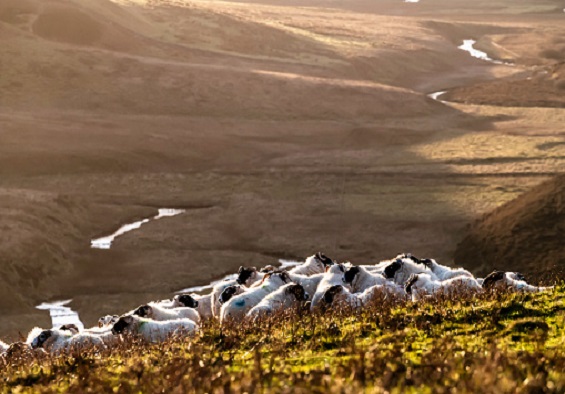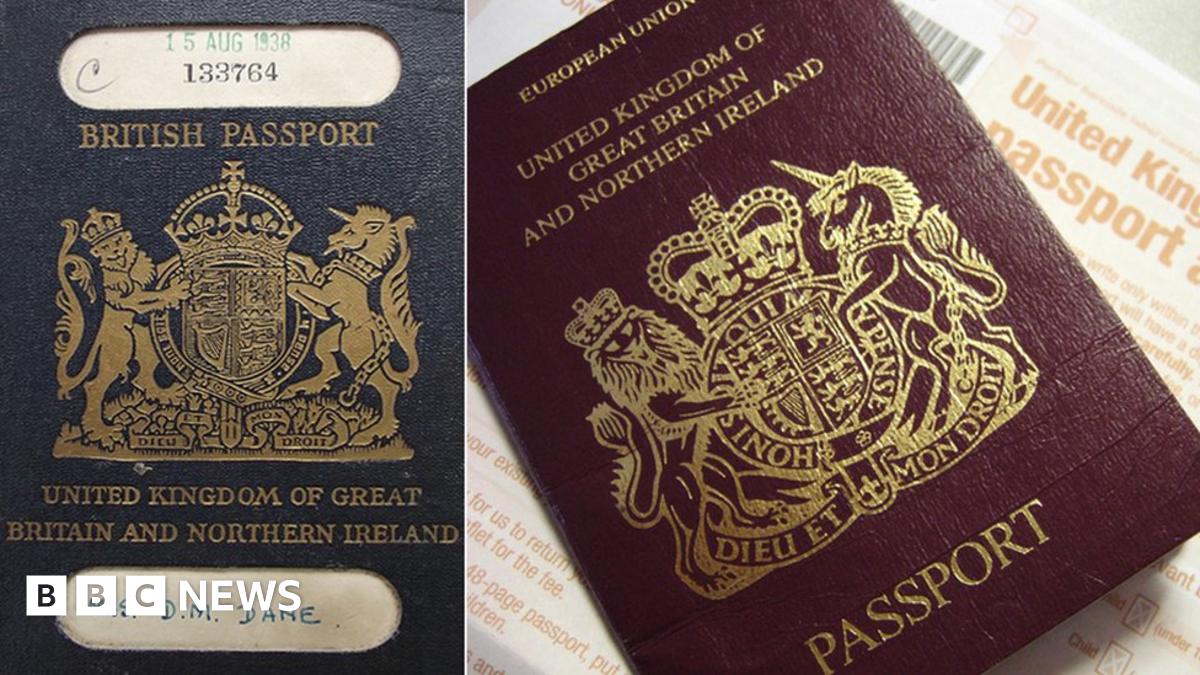Originally posted by Ein Heldenleben
View Post
How do Labour's inheritance tax policies support sustainable agriculture in Britain?
Collapse
X
-
Valid points. However, farmers don't 'enjoy' subsidies. It is questionable whether hill-farming (ie sheep) is a viable business without subsidies, to be honest. Subsidies which, at the moment, are undefined and with no date for them to be finalised with DEFRA dragging their feet and in thrall to Two-Tier's latest whims.Fewer Smart things. More smart people.
-
-
Hill farming is a bit of a knotty one when it comes to subsidies, as the effects of sheep overstocking are pretty destructive.Originally posted by Anastasius View Post
Valid points. However, farmers don't 'enjoy' subsidies. It is questionable whether hill-farming (ie sheep) is a viable business without subsidies, to be honest. Subsidies which, at the moment, are undefined and with no date for them to be finalised with DEFRA dragging their feet and in thrall to Two-Tier's latest whims.
DEFRA has form when it comes to feet dragging, not helped by the standard problem of anything to do with government originated computer systems doomed to have malfunction written into them. As such I don't know that non-delivery of money to those who should have had it has much to do with SKS; the whole subsidy revamp set-up inherited from the previous(apology for) administration was foundering well before he got to No10.
Comment
-
-
I will contribute when I can to the Technical thread but see little point in contributing to many other threads since it's all been said before. But when I do read something as fatuous as 'farms to be nationalised' which is driven by ideology rather than rational thought or actual experience then I will speak out.Originally posted by Serial_Apologist View Post
Maybe if instead of just popping in here as and when you contributed something constructive and intelligent to the discussion we'd be interested!Fewer Smart things. More smart people.
Comment
-
-
Sources, please. Preferably scientifically peer reviewed and not some biased viewpoint from, for example, Peta.Originally posted by Sir Velo View PostThe environmental impact of sheep farming has been devastating in this country. Sheep cause catastrophic deforestation, soil erosion, and increased soil salinity. The sooner we move to more sustainable farming practices the better.Fewer Smart things. More smart people.
Comment
-
-
Don't know if these might be of interest - I've just skimmed a selection from a search of 'problems of sheep grazing on upland areas'. Coincidentally I've just started reading a book related to a couple who took part in a TV series 'This Farming Life', documenting their work on a Scottish croft. It deals in part with rectifying the results of previous grazing by sheep, and also current pressure from deer, on the natural regeneration of tree species.Originally posted by Anastasius View Post
Sources, please. Preferably scientifically peer reviewed and not some biased viewpoint from, for example, Peta.
file:///C:/Users/User/Downloads/in15.0%20(1).pdf
 Sheep grazing in upland areas has a significant impact on the ecology of these landscapes. Uplands, typically characterized by mountainous or high-altitude regions, often feature sensitive ecosyste…
Sheep grazing in upland areas has a significant impact on the ecology of these landscapes. Uplands, typically characterized by mountainous or high-altitude regions, often feature sensitive ecosyste…
The irony is of course that the bare expanses of hillside are what so many people think of as natural countryside.
Comment
-
-
"Sheep farming is an invaluable tool not only for improving and safeguarding our beautiful countryside, but also for tackling and mitigating against threats such as climate change, flooding and soil degradation. UK sheep farmers are some of the best in the world for these efforts." Source: National Sheep Association.Originally posted by Anastasius View Post
Sources, please. Preferably scientifically peer reviewed and not some biased viewpoint from, for example, Peta.
' Upland sheep grazing impacts biodiversity and will take decades to recover' Source: Marrs & Chiverrall, University of Liverpool, School of Environmental Sciences.
Environmentalist Ben Goldsmith's argument is not that sheep-farming should cease, but that it shouldn't be subsidised. Source: The Independent.
It isn't given us to know those rare moments when people are wide open and the lightest touch can wither or heal. A moment too late and we can never reach them any more in this world.
Comment
-
-
Please don't apologise: we complemented each other! Clearly, each side has an argument here but a dialogue of the deaf is not very helpful.Originally posted by oddoneout View Post
Sorry! It's the kind of thing I have been interested in for a long time - certainly since at least student days.It isn't given us to know those rare moments when people are wide open and the lightest touch can wither or heal. A moment too late and we can never reach them any more in this world.
Comment
-
-
Thank you all for the excellent links.
Rather intriguingly I tried to follow some of the links from sheep farmers on the NSA site...their clickbait was all along the lines of 'Aren't we doing well at diversification etc'. Every single link is 404 Not found. Wonder if they've been hacked ? Or the farmers objected to their name being taken in vain? Or the NSA simply being a pointless organisation and disregarded by sheep farmers.
What did make me smile was, somewhere along the line, one source saying how much lamb we ate ? Ate? Have you seen the price?
The farmer (from Hell) who used to be our neighbour was a sheep farmer. Sorry, third-rate subsidy farmer. Nasty little man. Used to turn our electricity off for a laugh. Ended up being formally interviewed under caution by the police. I used to go to sleep formulating the perfect forensic-free murder. I did get there in the end. Not the murder, you understand, but the MO.
For the record, I loathe sheep.
Fewer Smart things. More smart people.
Comment
-
-
Another egregious example being the bogus claim by Farage at al that the EU made the UK give up the beloved blue passport....Originally posted by oddoneout View PostMany of the everyday irritations that were blamed on 'European rules' were in fact down to UK bodies gold-plating and/or mis-applying regulations, and also not differentiating correctly between what was advisory and what was mandatory.
Comment
-
-
As a matter of interest, whenever farming is mentioned it is invariably accompanied by negative mention of subsidies. Why are subsidies such an issue in this case, given they are a feature of so much other activity in this country, either directly as handouts, or indirectly as tax concessions or employees having inadequate wages propped up by the benefits system.
Comment
-
-
Well, let's begin with the small actual factual knowledge most of the public (not to mention journalists) have about the reality of farming today, apart for watching Emmerdale or listening to The Archers. Then add to that the news profile of 'the butter mountain' and 'set-aside' (popularly interpreted as 'paying farmers to do nothing') which still echo in people's memories.
Admittedly there was a clash between the post-war drive to make Britain produce more of its food, having been caught out in the war , and then the counter situation of joining the EU and having to accept imports of cheap food from Europe . At one time dairy farmers were being given help to produce more milk,then they were told to produce less. It's difficult for the pubic to get a rounded, in-depth view in an age of instant TV headlines and snappy summaries . It's little wonder there is misinformation and misunderstanding. It's happened in other areas too, such as defence and Arts spending.
Comment
-
-
As I understand it, it was the Country Landowners Association harvesting for yesterday's Whitehall demo, rather than farmers. As I also understand things, agricultural traffic is exempt from paying the ULEZ charge, although I don't have knowledge as to whether that also goes for the Congestion Charge; but I do wonder if anybody was arrested for all the noise, which reportedly made study in a nearby school untenable, and which one undertsands is now an arrestable offense.Originally posted by smittims View PostWell, let's begin with the small actual factual knowledge most of the public (not to mention journalists) have about the reality of farming today, apart for watching Emmerdale or listening to The Archers. Then add to that the news profile of 'the butter mountain' and 'set-aside' (popularly interpreted as 'paying farmers to do nothing') which still echo in people's memories.
Admittedly there was a clash between the post-war drive to make Britain produce more of its food, having been caught out in the war , and then the counter situation of joining the EU and having to accept imports of cheap food from Europe . At one time dairy farmers were being given help to produce more milk,then they were told to produce less. It's difficult for the pubic to get a rounded, in-depth view in an age of instant TV headlines and snappy summaries . It's little wonder there is misinformation and misunderstanding. It's happened in other areas too, such as defence and Arts spending.
Comment
-




Comment